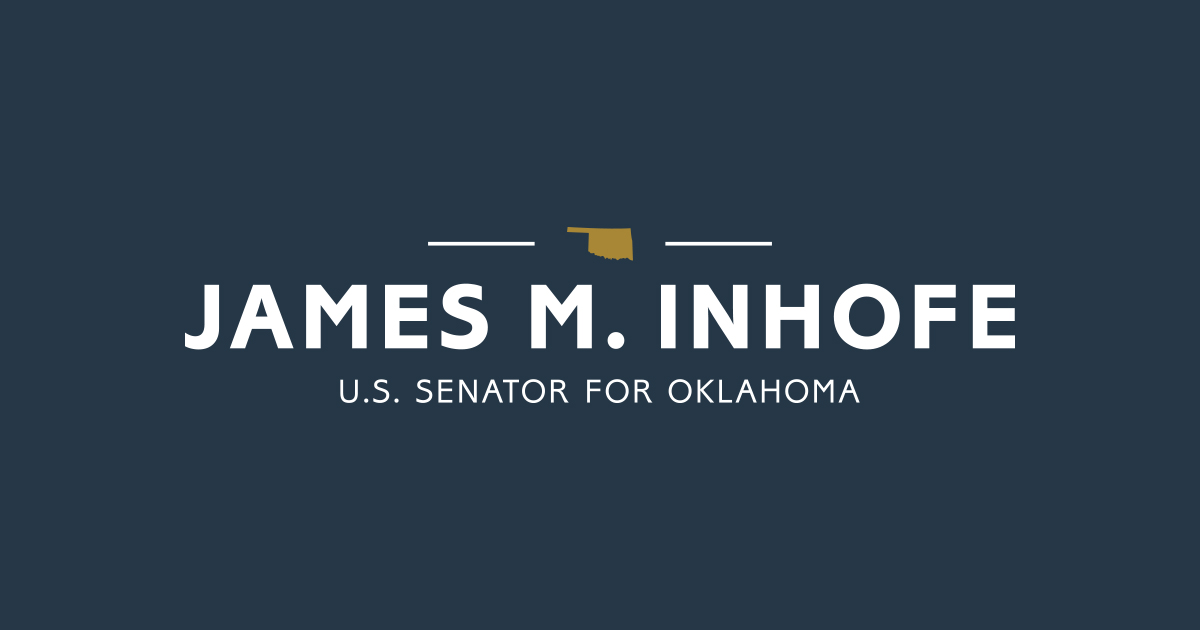Source: United States Senator for Oklahoma James Inhofe
Yesterday, U.S. Sen. Jim Inhofe (R-Okla.), senior member of the Environment and Public Works (EPW) Committee, questioned witnesses at an oversight hearing to examine programs at the Economic Development Administration and review programs for reauthorization.
Witnesses included: the Honorable Alejandra Castillo, Assistant Secretary of Commerce for Economic Development, U.S. Department of Commerce.
Inhofe: First of all, thank you very much, Senator Capito. I’m a very proud conservative, and at the same time, I have been the strongest supporter of the EDA. There’s no stronger supporter in the United States Senate. Since 2012, we’ve invested over 100 million dollars in nearly 150 projects in Oklahoma. I’m familiar with every one of those projects because that’s one thing that’s good about the EDA, you get the local people who really know what the needs are. That’s what we have been doing for a long period of time. This year, we’ve invested over 22 million dollars in projects in Oklahoma – for the Choctaw Nation and others – and yet, our rural communities still struggle developing applications or meeting cost-sharing requirements. Now, I talked to you back in June about the dilemma we have in some of our rural communities and just getting through the application process is an example. Any thoughts that you have now that you have been involved with this on what kind of help you can be to the small communities?
Castillo: Senator Inhofe, I have to take a moment to thank you because it was under your leadership that EDA was last reauthorized. I hope that under Senator Carper’s leadership we can get to that goal as well.
Inhofe: Oh, we’ll make sure it does.
Castillo: Senator Inhofe, first of all you mentioned the Choctaw Nation; EDA has a very special relationship in terms of making sure that we are engaging and collaborating with tribal communities. Under the American Rescue Plan we’ve designated 100 million dollars to tribal communities, as well as -most recently – we changed some regulations as to the type of partnerships that we can also engage with. We’ve allowed for private sector entities that are owned by tribes – in furtherance of the tribes. I’m giving you this example as a way of how we have expanded the way we’re working specifically with tribal nations. On the rural side, I’ll say again that under the American Rescue Plan we’ve designated 300 million dollars to work with both coal communities, as well as making sure that rural communities are engaged. Two-thirds of EDA’s grants are provided to rural communities, so we have a very strong benchmark as we work with rural communities. But again, one of the issues we want to do much better on as we think about this reauthorization is looking at our definition of distress. Making sure that we can look at distress not only through per-capita income and unemployment, but looking at broader factors that also come into play when we’re measuring distress. That in itself, Senator, will also be very helpful because the definition of distress coupled with our grant rates will make it much more accessible and available for communities that are struggling.
Inhofe: We appreciate that. You might remember that during our conversation several months ago, I brought up the activity of the type of aviation projects that we’ve had in my state of Oklahoma. We are quite an aviation state, and I’ve had aviation in my background. We’ve included report language into the appropriation bill encouraging EDA to consider economic development opportunities in aviation and aerospace-related industries in Oklahoma. The EDA joined FAA to invest in a new runway in Bristow airport. In fact, I flew a little aerobatic plane in to cut the ribbon to open that airport. We have an additional two million-dollar EDA grant at Will Rogers to complete hanger improvements, so we’ve been very active in that. I guess, I just want to comment to you, I know what your answer would be: that you would continue your strong consideration of aviation-related projects in your tenure.
Castillo: Very well captured, thank you.
Inhofe: We look forward to it. Thank you very much – and thank you very much, Senator Capito.
